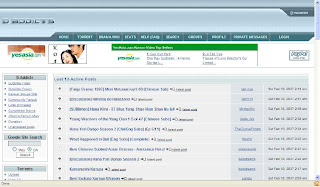Introduction
Does a true gift really exist? When you receive a gift, are there really no strings attached? According to Rheingold (1993), a gift economy is one “in which help and information is offered without the expectation of any direct, immediate quid-pro-quo.” Well, to a certain extent, it can happen in online discussion forums where digital information is freely shared. Despite the fact that the gift economy is a form of transaction where goods and services are given, the giver does stand to gain from this form of transaction as well.
What is a Gift?
A gift is the obligatory transfer of inalienable objects or services between related and mutually obligated transactors (Carrier, 1991). The concept of the gift involves some “element of personal interdependence – the giver of a gift remains an element of the good or service and does not alienate himself from it” (Bell, 1991). In the context of digital files, you would remember what you receive from someone as the file you got from XYZ user, as opposed to a commodity based system, where you just buy the file. However, I do not believe that a gift comes with no strings attached at all. When someone gives something, they are bound to receive something in return, even if it does not come in a tangible form. Moreover, the reciprocal relationship engendered in gift-giving forms the moral basis of society (Zeitlyn, 2003).
My Gift Economy
 There is an overabundance of gift economies on the net, but the one I choose would be D-Addicts, a torrent and discussion group site for Asian dramas. From this site, people put up the latest Japanese, Chinese and Korean dramas on the net for sharing and general distribution, via BitTorrent. There is also a forum in the site for people to discuss the recently put up dramas/past drama series.
There is an overabundance of gift economies on the net, but the one I choose would be D-Addicts, a torrent and discussion group site for Asian dramas. From this site, people put up the latest Japanese, Chinese and Korean dramas on the net for sharing and general distribution, via BitTorrent. There is also a forum in the site for people to discuss the recently put up dramas/past drama series.Just why is it considered a gift economy then? The people who take the effort to upload these shows are doing it for the general benefit of the people who are members of this site, and even the general net-surfing public. This site does not require you to be a member to download files, so there are many people who go there just to leech on the files. And yet, the contributors of this site continue to contribute anyway, knowing full well that these ‘leeches’ are unlikely to reciprocate their generosity.
However, they receive their rewards in other intangible ways. First, I believe it would be a heightened sense of self-worth. When you contribute files at the expense of your own time without expecting any form of immediate reciprocation, people would perceive you as generous, and a favorable impression of you would be formed. When people think of you in a positive way, you would also feel good about yourself. Besides this, participating in a gift economy would also improve your standing in the community, and extend your social networks. When you contribute regularly in a community, more people will recognize you for your efforts, and you would slowly rise the ranks and be an elder in the community. With an increased standing and visibility in the community, you would also be able to befriend more people and widen your social network online with people who share similar interests with you.
Conclusion
I believe that the “gift economy is important, not only because it creates openness, but also because it organizes relationships between people in a certain way.” (Bergquist & Ljungberg, 2001) And the advent of the Internet has made it all possible. However, the gift economy is not totally altruistic in nature, and I have demonstrated how the bearers of gifts online also get to receive their awards. As I have mentioned, the reciprocal relationship, even if it is not explicit in the case of gift economies, forms the moral basis of our society. There is no such thing as a totally altruistic action in the case of an economy.
References
Bell, D. (1991). Mode of Exchange: Gift and Commodity. The Journal of Socio-Economics. 20, 155-167.
Bergquist, M. & Ljungberg, J. (2001). The power of gifts: organizing social relationships in open source communities. Information Systems Journal 11(4): 305–320.
Carrier, J. (1991). Gifts, Commodities, and Social Relations: A Maussian View of Exchange. Sociological Forum 6(1): 119-136.
Kollock, P. (1999). 'The Economies of Online Cooperation; Gifts and Public Goods in Cyberspace". Retrieved February 9, 2007 from http://www.sscnet.ucla.edu/soc/faculty/kollock/papers/economies.htm
Rheingold, H. (1993). The Virtual Community: Homesteading on the Electronic Frontier. New York: Addison-Wesley
Zeitlyn, D. (2003). Gift economies in the development of open source software: anthropological reflections. Research Policy. 32, 1287-1291.
1 comment:
Good example of a gift economy... definitely a lot of work involved sharing drama serials, some of which other students have noted that they include fan-made subtitles as well.
Full grades.
Post a Comment